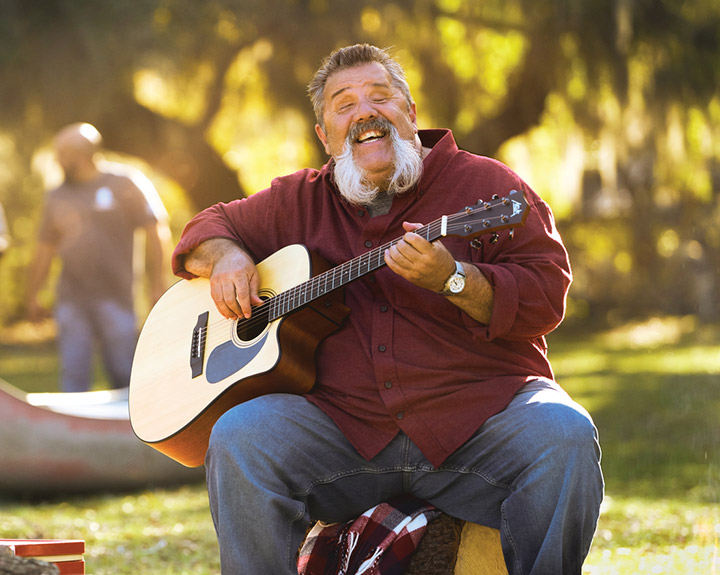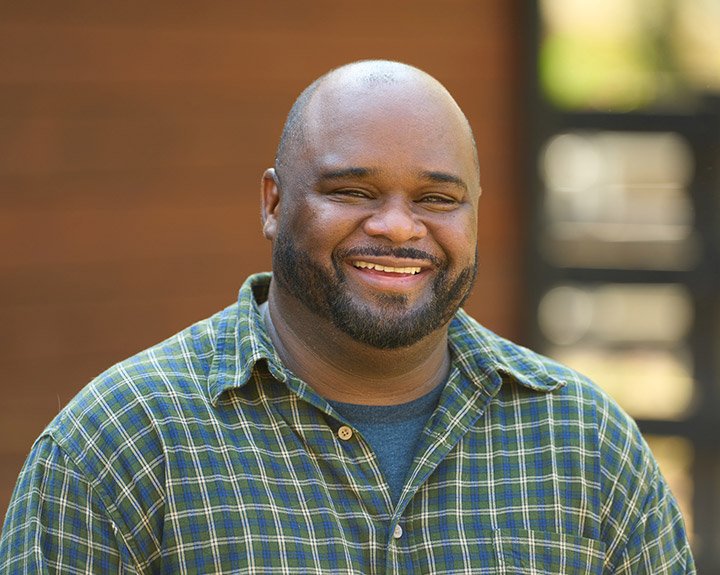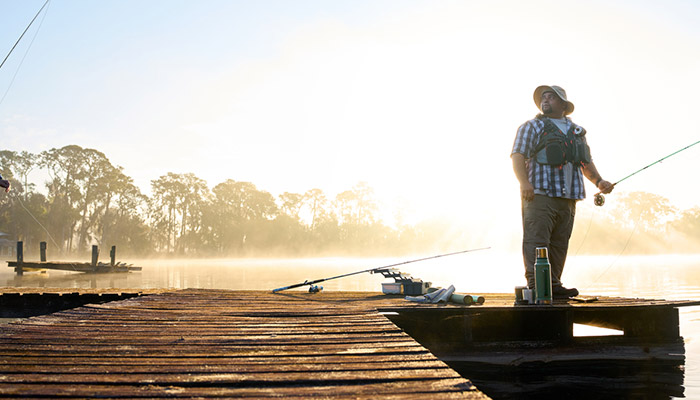
Tim Aponte
Army ● Sergeant ● Massachusetts
For 10 years, Tim loved serving in the Army. Days before he was due to return home, an explosion left him with a traumatic brain injury and a broken back.
For nearly 10 years, Tim Aponte loved serving in the U.S. Army. “You had total strangers banding together, willing to watch each other’s backs,” says Tim. “It was something I would never trade for anything else.” Then, just 53 days before he was scheduled to return home, a rocket-propelled grenade exploded near him, leaving him with a traumatic brain injury (TBI), internal shrapnel injuries, and a broken back.
Suddenly ripped away from his unit against his will, Tim struggled as much with the loss of camaraderie as he did with the lengthy and painful recovery from his physical injuries. Instead of feeling at home, he felt alone. In denial of having post-traumatic stress disorder (PTSD), his bouts of anger and depression got so bad that he fell into a dangerous downward spiral. He ended up homeless, living in a veteran’s shelter, and considering taking his own life.
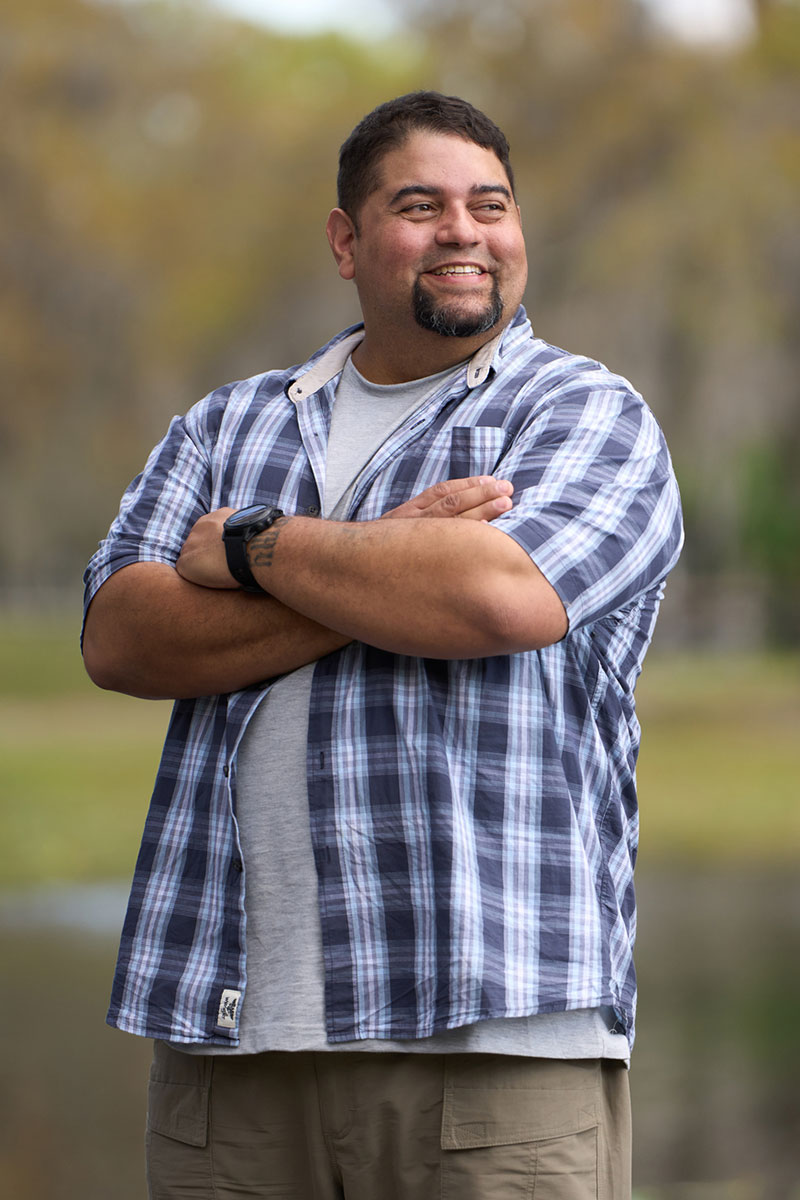
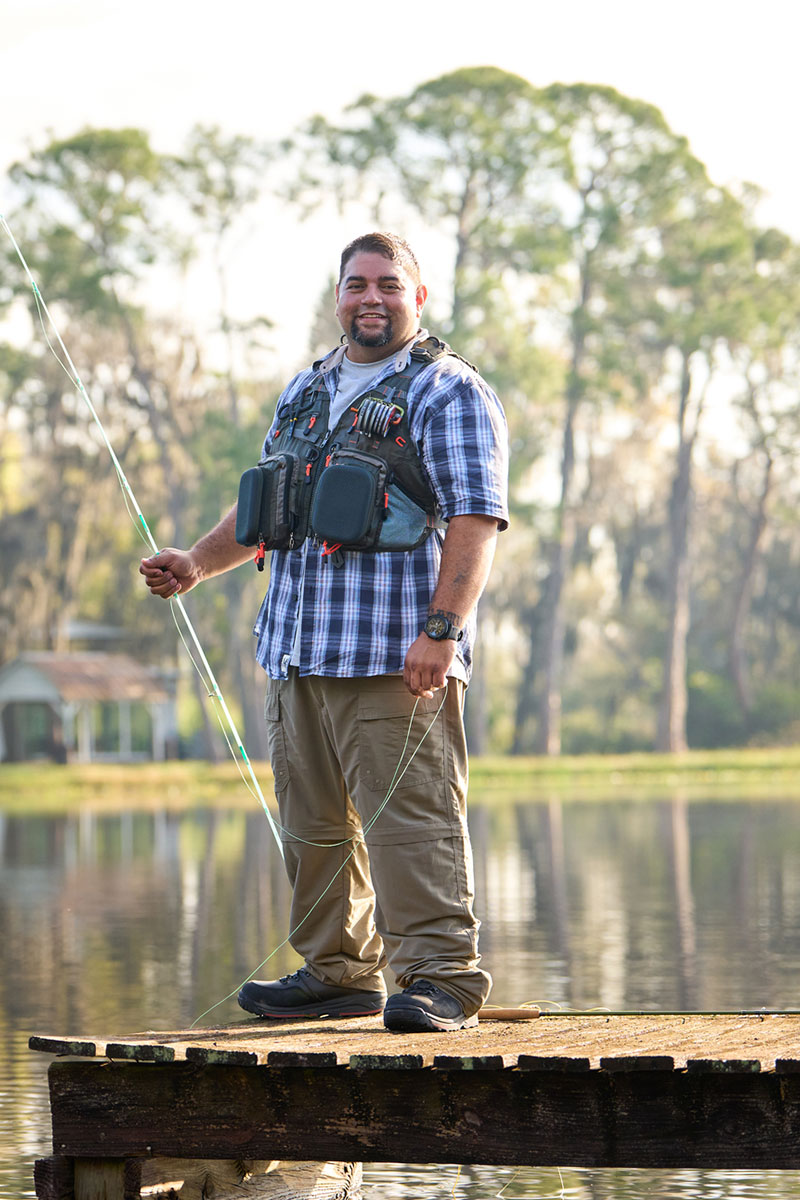
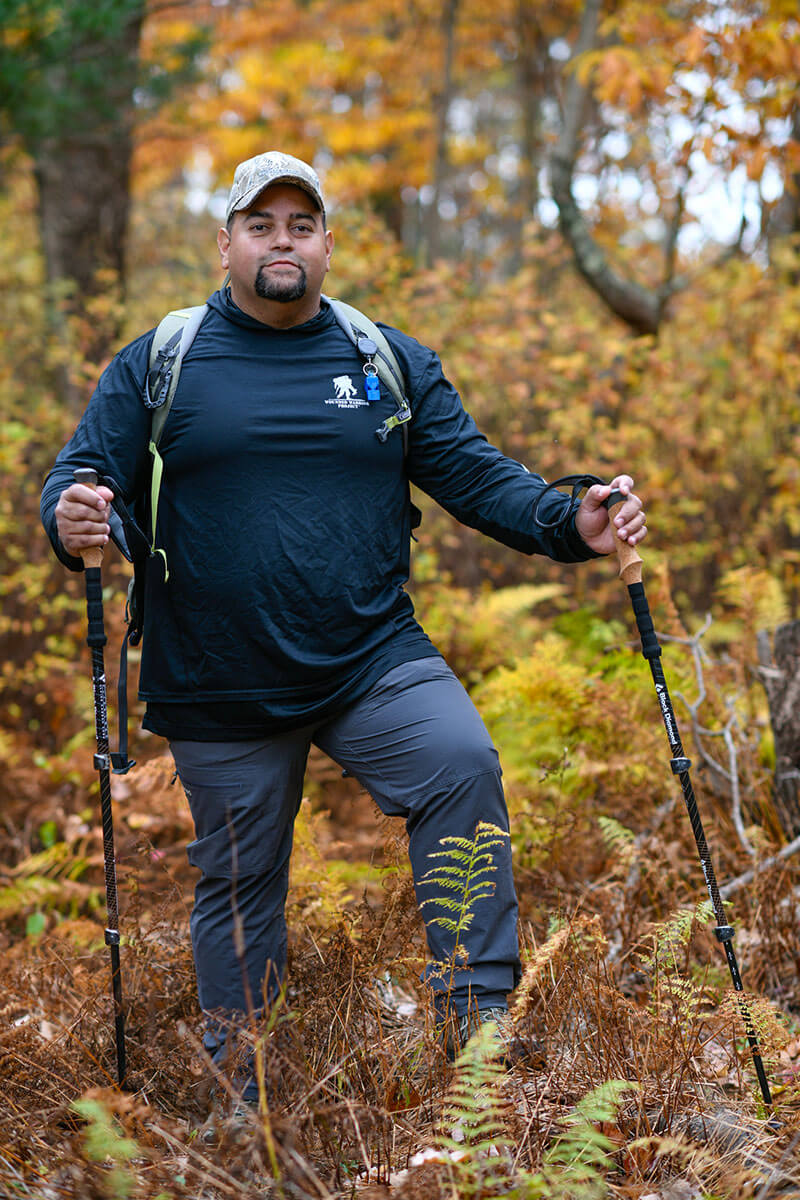
That’s when Tim decided to make a change. He immersed himself in college and sought help through the VA. After spending four years trying to find a vision for his future, however, a Wounded Warrior Project® (WWP) event finally gave him a glimpse of what was possible.
“Even though I didn’t know anybody,” says Tim, “I found it cool because I ended up in a duck boat full of other veterans. I thrive most when I’m part of a community. I knew I wanted that.”
“My life has been enriched by Wounded Warrior Project. Any time I’ve ever needed anything, the Wounded Warrior Project team has always been there.”
At another event, he learned about WWP’s Warrior Care Network® and soon began receiving intensive outpatient treatment for his PTSD and TBI. “I’m not going to lie to you,” says Tim. “It was life changing.” For him, one of the most uncomfortable parts of the program — having to do things that took him out of his comfort zone — ended up being one of the most rewarding.
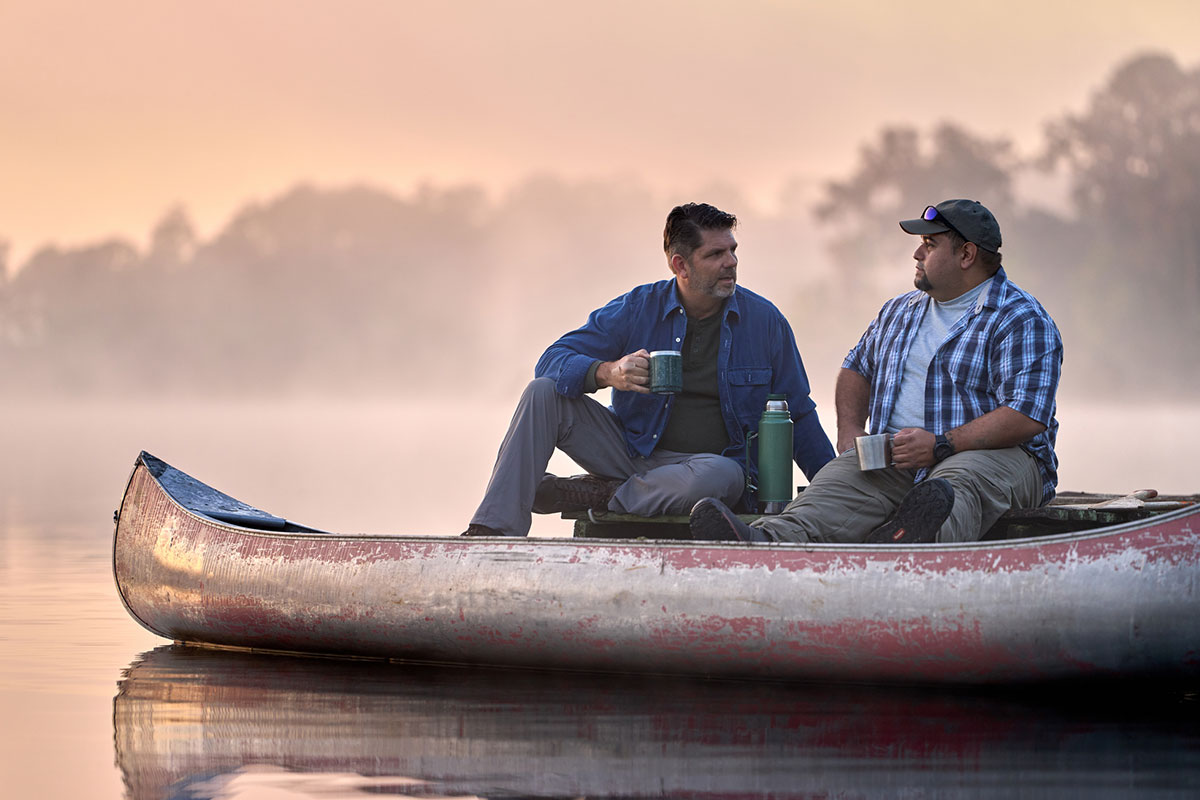
He also believes aftercare is a big part of what separates Warrior Care Network. “They don’t just help you find a therapist in your own community,” says Tim. “They help you find the right therapist. It’s an awesome program.”
Since participating in Warrior Care Network, Tim’s journey has included Soldier Ride®, Project Odyssey®, and many events in his local community. Now, his mission is to find ways to use what he has learned and experienced to help other veterans on their journeys to recovery.
Today, Tim is a WWP Peer Support Group leader for multiple groups where he shares his story and encourages others to do the same. “It’s given me purpose, direction, and motivation,” says Tim. “I didn’t have somebody to guide me or give me good advice — somebody to say, ‘Hey, I got you.’ I want to be that person for others, so they know they’re not alone.”
